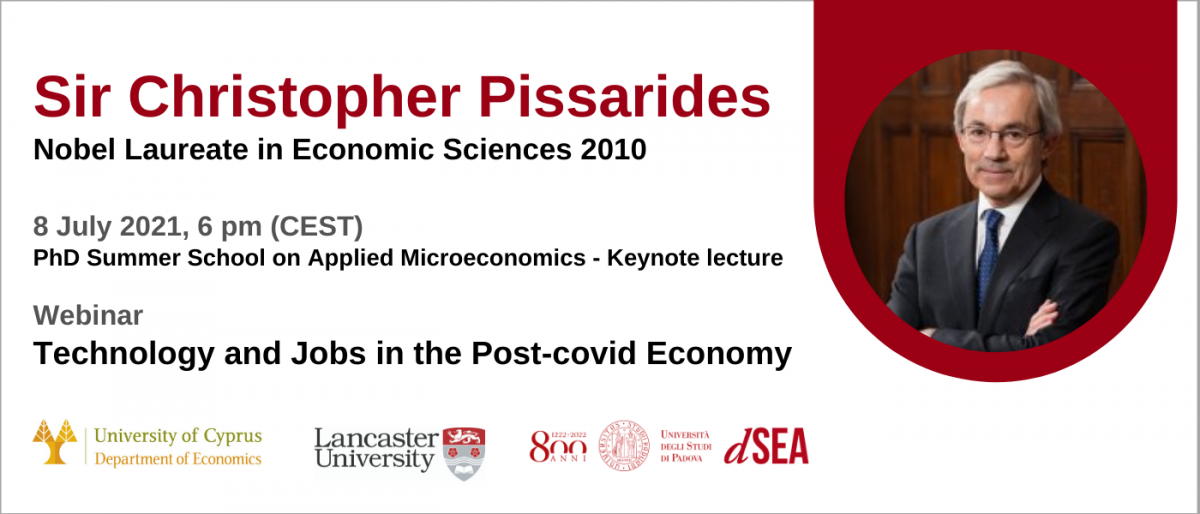Christopher Pissarides - Nobel Laureate in Economics 2010

We are honoured to welcome Professor Sir Christopher Pissarides, Nobel Laureate in Economic Sciences 2010, delivering a keynote talk on "Technology and Jobs in the Post-covid Economy".
This keynote talk is part of the PhD Summer School on Applied Microeconomics co-organized by the Universities of Cyprus, Lancaster and Padova and gives us the chance to learn from Professor Pissarides’ broad knowledge and expertise on the determinants of unemployment and the effects of automation and technology in labor markets.
This online event will take place on Thursday, 8 July 2021, at 6 pm (CEST).
Registration for the webinar is now open here.
Professor Sir Christopher Pissarides is the Regius Professor of Economics at the London School of Economics, and Professor of European Studies at the University of Cyprus. He specialises in the economics of labour markets, macroeconomic policy, economic growth and structural change.
Christopher Pissarides was awarded the 2010 Nobel Prize in Economics, jointly with Dale Mortensen of Northwestern University and Peter Diamond of MIT, for his work in the economics of markets with frictions. The Laureates’ work helps us understand the ways in which unemployment, job vacancies, and wages are affected by regulation and economic policy.
His long CV and impressive biography are difficult to summarise: Among others, he is an elected Fellow of the Econometric Society, the British Academy, the European Economics Association, the Academy of Athens and several other learned societies, and he is a Lifetime Honorary Member of the American Economic Association. In 2005, he was the first European economist to win (jointly with Dale Mortensen) the IZA Prize in Labor Economics. In 2011 he served as the President of the European Economic Association. In 2011 he received the Grand Cross of the Republic of Cyprus, the highest honour of the Republic. In 2013 he became Knight of the British Crown for his service in the field of economics.







